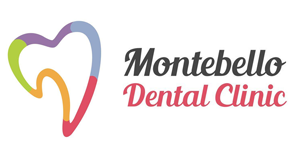Due to COVID-19, our practice is temporarily closed. Please give us a call if it is an emergency.
How to Reduce Pain After Oral Surgery?
What is Oral Surgery?
Oral surgery deals with diagnosing and treating conditions affecting the mouth, teeth, gums, and jaws. The oral surgery specialists are trained to perform various procedures, including dental implants, wisdom tooth removal, and corrective jaw surgery. In addition to general dentistry, oral surgeons must complete four years of additional training to be certified.
What are the Types of Oral Surgeries?
The oral surgeons perform various procedures geared to address a specific problem. Common procedures include wisdom tooth extraction, dental implants, and corrective jaw surgery.
Wisdom tooth extractions are typically performed when the teeth are impacted, meaning they grow at an angle and cannot erupt through the gum line. Dental implants replace missing teeth, and corrective jaw surgery is used to correct misalignments of the jaws.
How Long Will the Pain Following an Oral Surgery Last?
The pain from oral surgery can vary depending on the procedure performed. For example, wisdom tooth extraction is typically more painful than a simple tooth filling. In general, however, oral surgery’s pain should only last a few days. Pain relieving medication can help to manage the pain, and ice packs can also be helpful. It is essential to contact your oral surgeon if the pain persists for more than a week to ensure that there are no complications.
What Is the Recovery Time for Oral Surgery?
The recovery after mouth surgery will vary depending on the specific procedure that was performed. However, patients generally expect to experience some swelling and discomfort for the first few days after surgery. Most people will need to take pain medication for the first few days and eat a soft diet. Recovery time varies based on age and the type of procedure done, but most people will fully recover within two to four weeks.
What to Do After Oral Surgery
Following post-surgical instructions given by your dentist in Salmon Arm is vital if you want to recover successfully from surgery.
- Maintain a Clean Mouth
After having oral surgery, oral care is important to take care of your mouth to prevent infection and promote healing. Rinse your mouth with saline, warm salt water a couple of times a day, and brush your teeth gently with a soft toothbrush. Avoid using mouthwash, as it can irritate your incisions.
- Don’t Eat Hard or Crunchy Foods
It’s essential to avoid hard or crunchy foods after oral surgery. This is because these foods can pressure your healing wounds and cause them to open up. Eating soft, easily-digestible foods will help you recover quickly and avoid complications. Additionally, avoiding hot foods and drinks shortly after surgery is vital to ensure a speedy recovery and prevent complications from eating or drinking something too hot.
- Don’t Smoke for 24 Hours After Oral Surgery
Tobacco is a risk factor for several complications following oral surgery. These include infection, delayed healing, and bone loss. Stop smoking or chewing tobacco a few days before and after the surgery to reduce the risk of these complications.
- Ice the area After Oral Surgery
A cold compress can prevent fluid accumulation in the surgical area, reducing swelling and pain. Apply an ice pack or frozen peas for a few minutes (10 to 15 minutes) with at least 1 hour in between. It is also essential to keep the head elevated to reduce swelling.
- Use the correct type of medication After Oral Surgery.
Use only the type of medication that is recommended for your particular situation. Avoid taking anti-inflammatory or pain medications without consulting a dentist near you. This is because some medications can worsen gum bleeding or increase gum inflammation.
- Eat a rich diet
Diet is crucial to your recovery because certain foods can strengthen your immunity and hasten your recovery. Avoid taking processed and sugary foods that not only add no value to your health but also increase the risk of cavities.
Schedule an Appointment
Visit Montebello Dental Clinic for more information about oral surgery and what you can expect during recovery.

